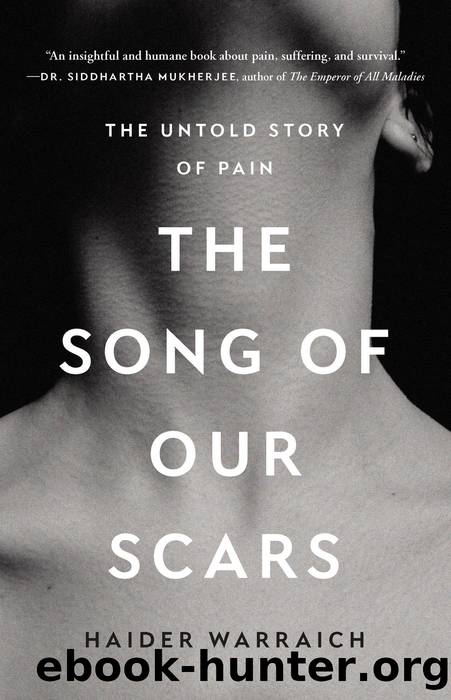The Song of Our Scars by Haider Warraich

Author:Haider Warraich
Language: eng
Format: epub
Publisher: Basic Books
Published: 2022-04-19T00:00:00+00:00
In the middle of my intense shifts in the hospital during my residency, the daily noon conference was an oasis. No screeching pages, medical emergencies, or mountains of paperwork. Just an uninterrupted hour of teaching. We medical trainees sat on chairs in a large classroom and discussed interesting cases, learned critical factoids, indulged in gallows humor, and, perhaps most importantly, put food in our restive bellies. It was a daily reminder of why I wanted to be a physician.
When I look back, those conferences blur togetherâexcept for one. Instead of diving into another medical mystery, one of our chief medical residents, John Mafi, read out a note that a recent graduate of the program had sent him. His name was Kevin Selby, and he had moved to Lausanne, Switzerland, where he was completing training as a primary care physician.
John read the email aloud to us as we continued to mow down our lunches (I want to say it was burrito day). It wasnât really clear to anyone why John decided to share the email until he reached the very last thing Kevin wrote to him, something so outlandish and fantastical that it silenced the room. Kevin wrote to John that in his six months of clinical practice since leaving the United States, he had not prescribed a single opioid.
Like many of my colleagues, I could barely go a few hours without prescribing opioids. It was my understanding that I couldnât actually perform my job if I couldnât manage peopleâs pain. I had been trained alongside the rest of the doctors in this country that the only way to help those in pain was to offer them an opioid; yet Kevinâs account seemed to challenge that notion.
I recently asked Kevin about this when I caught up with him. âThe goal was zero pain. The culture was that you hadnât really taken anyoneâs pain seriously if you hadnât given them opioids,â he recalled about his time in Boston over the phone from Switzerland.
Kevin felt even more pressured when he was working in the emergency room rather than the clinics or wards. âWe were told that we had to treat pain fast, that it was unacceptable for people to be in pain and the way to treat pain fast was to give opioids.â
This was very different from his experience in Lausanne. But he wasnât seeing fewer people with chronic pain. Studies show that Americans are not much more likely to have chronic pain than Europeans. The difference was how European doctors were trained to respond to it.8
As a resident, it seemed as though not being able to give opioids for chronic pain was like playing baseball without a bat. As I would later learn, though, that was because I had been asked to play a losing game. In fact, almost everything I had been taught about pain and opioids was wrong.
Download
This site does not store any files on its server. We only index and link to content provided by other sites. Please contact the content providers to delete copyright contents if any and email us, we'll remove relevant links or contents immediately.
The Poisoner's Handbook by Deborah Blum(2135)
Bottle of Lies by Katherine Eban(1792)
Mycelium Running: How Mushrooms Can Help Save the World by Paul Stamets(1681)
The Vaccine Race by Meredith Wadman(1653)
The Doors of Perception and Heaven and Hell by Aldous Huxley & Aldous Huxley(1582)
Missing Microbes by Martin Blaser(1577)
Pharmacy Practice and The Law by Richard Abood(1576)
Decisive by Chip Heath(1561)
28 Seconds by Michael Bryant(1526)
Steroids: History, Science, and Issues by Standora Joan E.; Bogomolnik Alex; Slugocki Malgorzata(1519)
McGraw-Hill Nurses Drug Handbook by Patricia Schull(1500)
The Doors of Perception: Heaven and Hell (thINKing Classics) by Aldous Huxley(1482)
Ganja Yoga by Dee Dussault(1447)
What's Making Our Children Sick? by Michelle Perro(1415)
Complete Guide to Prescription & Nonprescription Drugs 2014 by H. Winter Griffith(1364)
Stealing Fire: How Silicon Valley, the Navy SEALs, and Maverick Scientists Are Revolutionizing the Way We Live and Work by Steven Kotler & Jamie Wheal(1332)
Anatomy of an Epidemic by Robert Whitaker(1328)
Trip by Tao Lin(1286)
Cannabis for Chronic Pain by Rav Ivker(1222)
